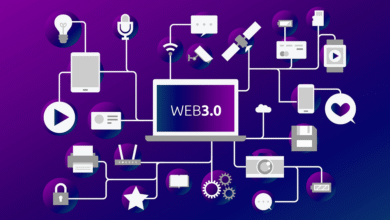
Artificial Intelligence (AI) has emerged as a transformative technology, revolutionizing various aspects of business and extending its impact far beyond the corporate world. With its ability to analyze massive amounts of data, learn from patterns, and make intelligent decisions, AI has become a driving force behind innovation, efficiency, and competitiveness. In this article, we will explore the rise of AI and its profound impact on businesses and society as a whole.

The development of computer systems that are able to carry out tasks that ordinarily need human intelligence is referred to as artificial intelligence. These systems can perceive, reason, learn, and adapt, enabling them to simulate human-like cognitive abilities. Robotics, machine learning, natural language processing, computer vision, and other topics fall under the umbrella of artificial intelligence (AI).
Read More: Setting Up a Home Automation System: Smart Devices and Integration
Applications of AI in Business
AI has found widespread applications across different industries, driving innovation and transforming traditional business practices. From enhancing decision-making processes to automating routine tasks, AI is reshaping the way organizations operate.
Enhancing Decision-Making with AI
AI-powered analytics and predictive models enable businesses to extract valuable insights from large volumes of data. By analyzing patterns and trends, AI systems provide decision-makers with actionable information, allowing them to make more informed and accurate choices.
Automating Processes with AI
AI technologies automate repetitive and mundane tasks, freeing up human resources to focus on more strategic and creative activities. Robotic Process Automation (RPA) and intelligent chatbots are examples of AI-powered automation tools that streamline workflows and increase operational efficiency.
AI and Customer Experience
AI has completely changed how companies communicate with their customers. Chatbots and virtual assistants can provide instant and personalized support, improving customer satisfaction and response times. AI algorithms can also analyze customer data to identify preferences and deliver targeted marketing campaigns.
AI and Personalization
Businesses may provide their clients with highly personalised experiences thanks to AI.. By leveraging customer data and machine learning algorithms, companies can tailor product recommendations, content, and services based on individual preferences, increasing engagement and customer loyalty.
AI and Predictive Analytics
Predictive analytics powered by AI allows businesses to forecast future trends, behavior, and outcomes. By analyzing historical data, AI systems can identify patterns and make accurate predictions, enabling organizations to optimize inventory management, anticipate customer needs, and make proactive business decisions.
Ethical Considerations of AI
The importance of ethical considerations increases as AI develops. Issues such as bias in algorithms, data privacy, and the potential impact on jobs need to be addressed. Organizations must ensure transparency, fairness, and accountability in the development and deployment of AI systems.
AI in Healthcare
The rise of AI is transforming healthcare by enabling early disease detection, personalized treatment plans, and efficient medical research. Machine learning algorithms can analyze medical records, genetic data, and imaging scans to assist in diagnosis and provide targeted therapies.
AI in Finance
The rise of AI In the financial sector, AI is revolutionizing risk assessment, fraud detection, and algorithmic trading. AI algorithms can analyze vast amounts of financial data in real-time, identifying anomalies and patterns that may indicate fraudulent activities or investment opportunities.
AI in Manufacturing
AI-driven automation and robotics are optimizing manufacturing processes, increasing productivity, and reducing costs. Intelligent robots can perform complex tasks with precision, while AI systems monitor and optimize production lines for maximum efficiency.
AI in Transportation
The rise of AI Autonomous vehicles and AI-powered logistics systems are reshaping the transportation industry. Self-driving cars and trucks promise enhanced safety, reduced congestion, and increased fuel efficiency. AI algorithms also enable intelligent route planning, optimizing delivery schedules and minimizing transportation costs.
AI and Cybersecurity
The rise of AI is playing a critical role in strengthening cybersecurity defenses. Machine learning algorithms can identify and analyze patterns of cyber threats, detect anomalies, and respond in real-time to protect networks and sensitive data from cyber attacks.
AI and Employment
The rise of AI has sparked concerns about its impact on employment. While AI may automate certain tasks, it also creates new opportunities and job roles. To harness the full potential of AI, organizations must focus on upskilling and reskilling their workforce to adapt to the changing technological landscape.
Conclusion
Artificial Intelligence is a game-changer, revolutionizing businesses and shaping the future of various industries. Its ability to process vast amounts of data, automate processes, and deliver personalized experiences has immense potential. However, ethical considerations, transparency, and the responsible deployment of AI are vital to ensure its positive impact on society.
Read More: A Comprehensive Guide to UX Design: Creating User-Friendly Interfaces
FAQs
How does the rise of AI revolutionize decision-making in business?
AI-powered analytics and predictive models enable businesses to extract valuable insights from data, facilitating more informed and accurate decision-making.
What are the ethical considerations of AI?
Ethical considerations of AI include addressing bias in algorithms, ensuring data privacy, and mitigating potential job displacement.
Can the rise of AI improve customer experience?
Yes, AI can enhance customer experience through personalized support, targeted marketing, and tailored product recommendations.
What industries are benefiting from AI?
AI is transforming industries such as healthcare, finance, manufacturing, transportation, and cybersecurity, among others.
Will the rise of AI replace human jobs?
While AI may automate certain tasks, it also creates new job opportunities. Upskilling and reskilling are crucial for individuals to adapt to the changing job market.











